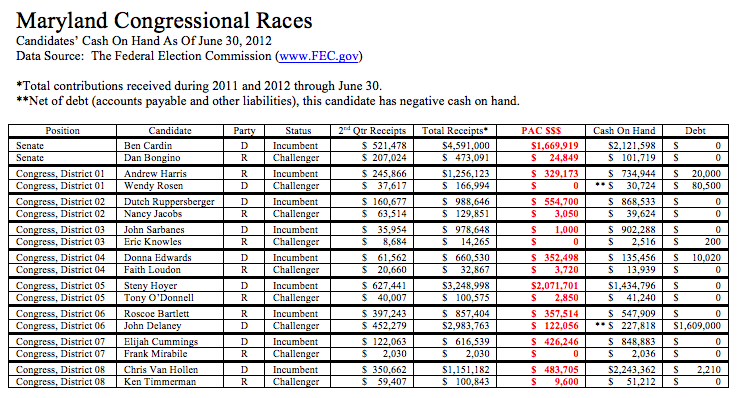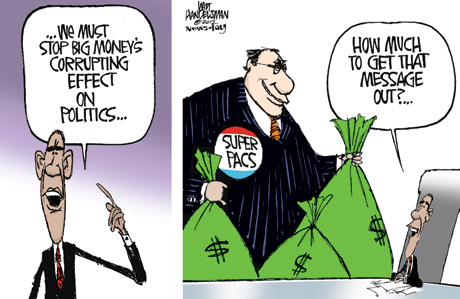 Friday, July 20, 2012
Friday, July 20, 2012
This post updates an earlier article that showed the dramatic differences between what incumbents versus their challengers are able to raise to finance their respective campaigns. The previous article’s data were as of March 31, 2012. Reporting to the Federal Election Commission is quarterly. These data, in the table below, are as of June 30, 2012.
 You may want to click on the above table to read it more easily.
You may want to click on the above table to read it more easily.
Not surprisingly, with one exception (Bartlett v. Delaney), the incumbents have raised substantially more in the second quarter than their challengers, further improving their advantage. While most challengers are barely funding campaign operations from month-to-month, the incumbents are accumulating substantial reserves that they will deploy, depending upon what late polls tell them, for last minute advertising and other initiatives.
How are these incumbents able to raise so much more money? Two reasons. The first is contributions from their parties that want to keep as many of their incumbents in office as they can. These same parties organizations, the DNC and RNC, for example, will also support challengers who have a real shot at unseating the other party’s incumbent. And if you’re a challenger who doesn’t stand a chance without party support? Well, you’re not going to get it unless you can produce a poll that shows you within striking distance. Nothing personal. Parties are not venture capitalist and don’t waste their money on long-shots.
The other reason, to no one’s surprise, is that incumbents get substantial contributions from political action committees representing interests that want access to the incumbent and to encourage his or her support for their various legislative agendas. Note the totals in the third column from the right from what the FEC calls “Non-Party (e.g., PACs) or Other Committees.”
Impressive numbers, aren’t they? For the incumbents, that is. Selling access, selling votes is big business in Washington. (Democrat Incumbent John Sarbanes is a notable exception.) The longer you stay in office, the better you are at it. And you wonder why the wrong people keep getting re-elected?
-Next Contestant

